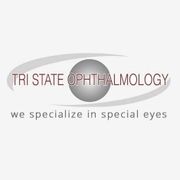What Is Blue Light & How Can It Impact Your Eyes?

Light is an important component of everyday life, illuminating workspaces and making it possible to soak in some sunshine. Unfortunately, some wavelengths of light are especially harmful to the eyes, including blue light. Here is a brief guide to blue light, how it could impact your eyes, and how eye doctors recommend protecting your vision.
Understanding Blue Light
What Is Blue Light?
Blue light has the shortest wavelength of all visible light, ranging between 380 and 500 nm. Unfortunately, these powerful wavelengths of light are especially good at sneaking through the lens of your eye and impacting the deeper structures, causing problems. UV light has even shorter wavelengths of energy than blue light, but is invisible to the naked eye, making it even more difficult to avoid. While the sun is the most abundant source of both blue light and UV light, fluorescent lights, LEDs, flat screen televisions, and even computer screens also emit blue light.
 How Can Blue Light Hurt Your Eyes?
How Can Blue Light Hurt Your Eyes?
When blue light reaches the retinas, it can prematurely age the structures of the eye. Common problems include eyestrain, retinal damage, cataracts, and macular degeneration. Fortunately, by doing what you can to avoid sources of blue light and prolonged exposure, you can keep your eyes healthier.
To prevent blue light damage, eye doctors recommend taking regular breaks from staring into computer screens or watching television monitors. As a general rule of thumb, shift your vision away from blue light sources every twenty minutes, and look at an object at least twenty feet away for at least 20 seconds. Always wear eye protection when you are outside, and talk with your eye doctors if you experience any changes with your vision.
If you are concerned about your eye health, don’t hesitate to reach out to eye doctors like the team at Tri-State Ophthalmology. In addition to helping with blue-light related problems like cataracts, these specialists can also assist patients with the treatment of age-related macular degeneration, diabetic eye disease, and much more. Schedule your next visit by sending them a message online, or give their office a call at (606) 324-2451.
About the Business
Have a question? Ask the experts!
Send your question

